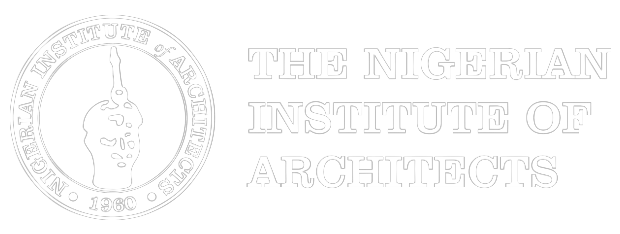
The Nigerian Institute of Architects (NIA) was founded on the 1st of April 1960 as an association of independent professional architects with the aims and objectives of fostering friendship amongst members, cater for their welfare and establish mutual support and cooperation amongst them.
The idea for the formation of an independent professional architect’s organization in Nigeria was first conceived and motivated by three Nigerian architects while still pursuing their training in England in the early fifties.
In 1958, an 8-member study group was formed to carry out the detailed planning for the establishment of the Institute which ultimately culminated in inauguration of the Institute.
From a modest 13 members at inauguration, the Institute has experienced a phenomenal growth in its membership, activities, stature and influence both at national and international levels. Total membership today stands at about 12000 in 5 classes of membership including Fellows, Full members, Associates, Graduates _ Students members spread across 31 Chapters and the Federal Capital Territory.
The policy making body of the Institute is the Executive Council and activities are carried out through the Committees of Council as follows:
- Board of Architectural Education is responsible for all Educational programmes and activities of the Institute such as Visitation and Accreditation of Schools of Architecture in Nigeria, conduct of Professional Practice Examinations, and implementation of Continued Professional Development Programmes.
- Practice Committee is responsible for professional practice policies, programmes and ethics in all its ramifications.
- International Affairs Committee is responsible for the initiation of NIA’s Policies, Programmes, and activities as they relate to international organizations to which the NIA is affiliated.
- Students Affairs Committee takes care of the welfare and interests of architecture students in Institutions of higher learning and their integration into the Institute’s programmes.
- Publications and Library Committee is responsible for collecting and publishing materials and write-ups from both the academics and practice as well as other related matters. The committee is also responsible for keeping stock, running and maintaining a comprehensive library.
- Public Relations committee is vested with the responsibility of maintaining a good public image for the Institute, the architects and the architectural profession as a whole. It also ensures cordial relationship with the authorities, the mass media, the public and other allied professionals and organizations within the built industry through various public relations programmes and activities.
- Disciplinary Committee is primarily concerned with maintaining high ethical and professional standards and strict adherence to the above as provided for in the various provisions of the NIA Code of Conduct and Ethics.
- Admission Committee is responsible for the processing of applications for admission into various categories of membership viz: Fellow, Full Member, Associate, Graduate, Student and Honourary Membership.
- Female Architects of Nigeria (FAN) The Female Architects of Nigeria is tasked with mobilizing women members to fully participate in the activities of the Institute in addition to other specific programs.
- Archibuilt Committee is saddled with the responsibility of organizing and planning the annual specialized forum of Building Materials and Construction Technology and other related programmes including the publication of Compendium and the Archibuilt up-date. Archibuilt is one of several NIA Public service programmes being pursued to complement efforts of government and other interest groups in the development of the nation.
- Finance Committee whose Chairman is the National Treasurer is responsible for handling the finances of the Institute. The Committee is responsible for the initiation of financial policies and programmes for the Institute including ways and methods of generating funds for the Institute.
The management of the affairs of the Institute is vested in an Executive Council which comprises of members elected at the Biennial General Meeting of the Institute or appointed. The Executive Council is headed by the President who takes the Chair at all its meetings and the General Assembly.
The Institute continues to cooperate with governmental and non-governmental organization, universities, polytechnics, technical institutions and other institutions of learning, professional institutions and other bodies in promoting the dynamic role of the architect in the society and in advancing the aims and objective of the Institute.
The Nigerian Institute of Architects is a member of the International Union of Architects (UIA), a founding member of both the Commonwealth Association of Architects (CAA) and the Africa Union of Architects (AUA).


